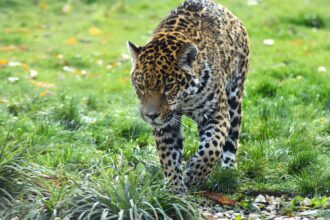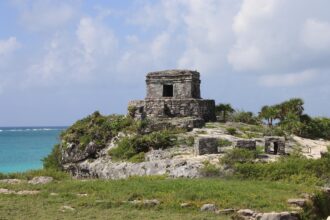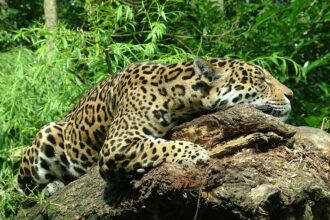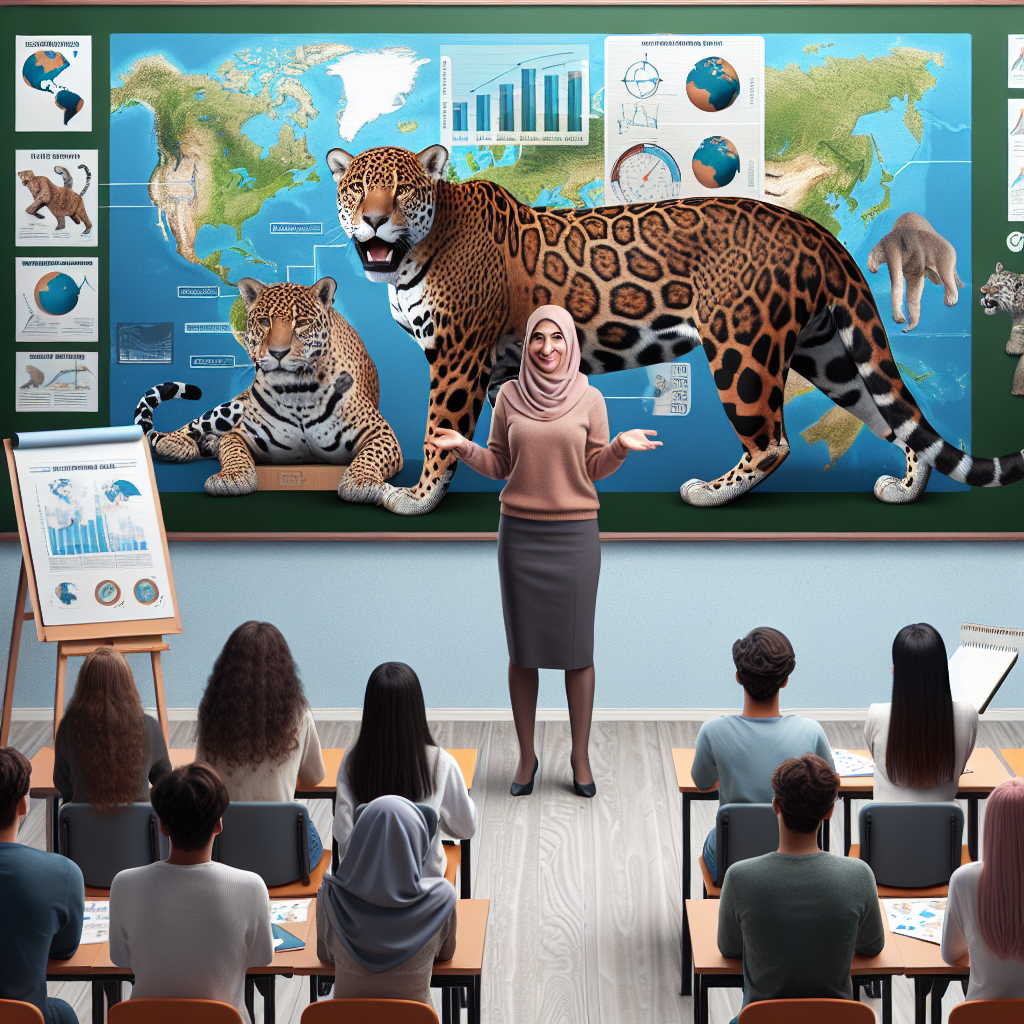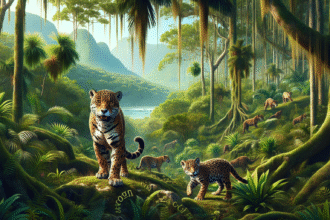Inspiring Future Conservationists: Jaguar Workshops for Students
Understanding the Jaguar’s Role in Ecosystems
Jaguars are magnificent, apex predators known for their strength and beauty. In many ecosystems, they play a critical role in maintaining the balance of biodiversity. By preying on large herbivores and other smaller animals, jaguars help control populations, ensuring a healthy and balanced environment. Ecosystems such as the Amazon rainforest, the Pantanal wetlands, and the Atlantic Forest are vital habitats for these big cats. Understanding this role is an essential part of any jaguar workshop for students, as it highlights the importance of conserving their habitats.
Workshop Objectives
The primary aim of jaguar workshops is to educate and inspire students about wildlife conservation, focusing on the skills necessary to become effective advocates for the environment. Through interactive discussions and hands-on activities, the workshops equip students with knowledge about ecological balance, habitat preservation, and the specific threats facing jaguars, such as habitat loss, poaching, and climate change.
Curriculum Structure
1. Interactive Learning: Understanding Biodiversity
Initial segments of the workshop focus on biodiversity, emphasizing the interconnectedness of species within an ecosystem. Students engage in group activities that illustrate food chains and food webs, allowing them to visualize how jaguars impact other species. Discussing keystone species, students grasp how the decline of one species can affect an entire ecosystem.
2. Exploring Habitat and Range
The workshop incorporates geographical and ecological studies, using maps and field guides. Students learn where jaguars traditionally roam, exploring which habitats are essential for their survival. Highlighting the rich biodiversity of the regions they inhabit allows students to appreciate different ecosystems while understanding the ecological niches jaguars occupy.
3. Conservation Challenges
Workshops delve into real-world challenges that jaguars face. Guided discussions address issues such as deforestation, agricultural expansion, and human-wildlife conflict. Students analyze case studies showing the declines in jaguar populations due to these pressures, fostering critical thinking about potential solutions.
4. Field Activities: Hands-On Experience with Wildlife Conservation
Practical activities are an integral part of the workshops. Organizing field trips to local wildlife reserves or conservation areas gives students firsthand experience. They may participate in activities like wildlife tracking, trail camera monitoring, or habitat restoration projects. These engaging experiences promote teamwork and offer students the chance to observe the natural environment and learn about conservation efforts in action.
5. Inspirational Guest Speakers
Inviting experts in wildlife conservation, including ecologists, veterinarians, and wildlife photographers, showcases the variety of careers focused on conservation initiatives. These professionals share their journeys and the importance of jaguar conservation, revealing how students can contribute and pursue similar paths. These narratives empower students, igniting their passion for conservation and inspiring potential future careers.
Incorporating Technology in Conservation Education
Technology plays a vital role in modern conservation strategies. Workshops can utilize skills such as Geographic Information System (GIS) mapping or smartphone apps for wildlife observation. Training on how to use digital platforms might also inspire students to participate in citizen science projects, contributing data to broader conservation efforts.
Creative Projects: Arts and Advocacy
To combine creativity with action, the workshops can include projects where students create advocacy materials. They may design posters, brochures, or social media campaigns promoting jaguar conservation. By harnessing artistic skills to deliver a strong conservation message, students become more effective advocates for their cause.
Collaboration with Local Communities
Partnerships with local conservation organizations and indigenous communities enhance the workshops’ impact. Educating students about the cultural significance of jaguars among local populations fosters respect and understanding of traditional ecological knowledge. This collaboration aids in developing solutions that bridge modern conservation science with ancient wisdom.
The Importance of Future Conservationists
Inspiring future conservationists is critical for ensuring the preservation of species like the jaguar. By educating students about the challenges and opportunities within conservation, we empower the next generation to become stewards of the earth. Increasing awareness fosters responsible environmental attitudes, encouraging young people to engage in active conservation efforts.
Creating a Supportive Network
Establishing a network for students participating in workshops ensures ongoing engagement. By providing current conservation news, resources for further learning, and avenues for activism, students remain connected to the conservation community. Fostering this network also facilitates collaboration among young conservationists to design and implement projects that benefit local ecosystems.
Next Steps
Students who participate in jaguar workshops can take various steps to make a difference. They can volunteer with local conservation organizations, create awareness campaigns, or start wildlife clubs at their schools. Small actions, when multiplied, can lead to significant societal impacts.
Monitoring Progress: Evaluating Impact
Tracking the outcomes of these workshops is essential for continuous improvement. By gathering feedback from students and assessing their knowledge retention and engagement levels, organizers can adapt and refine the curriculum. Monitoring the long-term involvement of participants in conservation activities can measure the workshops’ effectiveness, ensuring that they evolve to meet students’ needs.
Global Connections
Highlighting global conservation efforts allows students to see how jaguar preservation fits into the larger context of wildlife protection. This includes initiatives like the Jaguar Corridor Project, which aims to connect fragmented habitats across Central America and South America. By understanding global interconnectivity, students gain insights into the importance of international collaboration in conservation efforts.
Funding and Support for Workshops
Securing funding for jaguar workshops is essential for maintaining quality education and outreach. Potential sources include grants from environmental foundations, sponsorship from corporations, and fundraising efforts within communities. Engaging local businesses in conservation can reinforce community ties while providing necessary resources.
High-Impact Partnerships
Collaboration with universities, nonprofit organizations, and global conservation networks amplifies the reach of workshops. Engaging with institutions that specialize in conservation science can establish mentorship programs, offering students pathways into higher education and careers focused on wildlife protection.
Engaging Parents and Communities
Encouraging parental and community involvement in conservation initiatives reinforces the importance of jaguar preservation. The workshops can organize family-friendly events that showcase what students learn, such as wildlife festivals or educational nights focused on local habitats and species at risk.
Legacy of Conservation
Ultimately, the aim of jaguar workshops is to cultivate a generation that values conservation. By equipping students with the knowledge, skills, and passion needed to safeguard the future of jaguars and their habitats, we not only influence individual lives but also contribute to the larger goal of sustaining our planet’s ecological richness. Through these efforts, the hope is to inspire committed future conservationists who will champion the cause of wildlife, ensuring that the legacy of the jaguar continues for generations to come.


